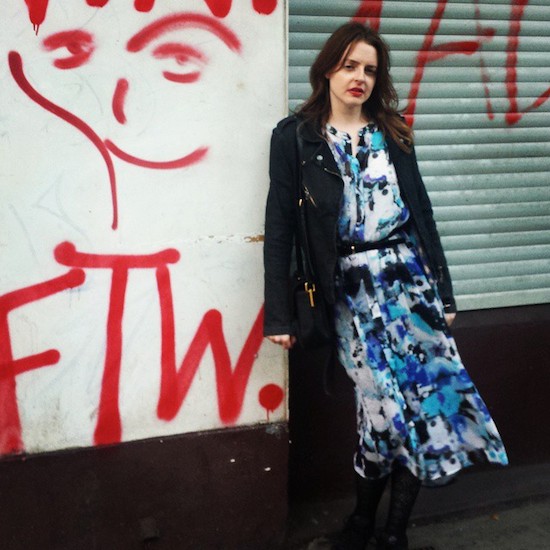Ted’s a bad god with a tight fist. My brother looks like him. The same severe parting and soot eyes. They say the mines fucked Ted’s heart but it was gone before then. Gone before he got the boat and went down the pit and came back. Ted ended in a leaky stagger in a paddock’s parched grass. A soft, puzzled muzzling. It wasn’t his. Cattle don’t get enough credit. They have saints’ eyes and can’t bite.
Ted’s bad bones hold up and rattle this house, his son Billy and his sisters. Flat Jesus above fire looks away from the nightly bruising galaxy. Ted’s wife Jill has to sleep outside in the shed some nights, where the donkey brays and dreams. She sobs between winds that roll off the beach. She is too soft and sees good in everyone, or looks too hard for it when it’s gone. Ted is too fond of the horses and comes home with no wages in mute red mists. Mum berates anything that breathes but she will never hear a bad word said against a donkey. When I feel sad about mum I see donkeys.
I’ve seen black and white Jill with a chignon and veil and a mouth that’s just said a tentative yes to a man in braces under a black shroud, conjuring ambulant light. She has creamy silent star beauty. A smooth nose that my Roman dad’s side bulldozed. She is cautiously polite with half-mast eyes. But this was before six weeks’ sickness and cursing over rails. Before cynical sweeping of Chicago church steps. ‘Look at her look at her there she is’ and a rush to the side to see that frigid green lady. Ghostbusters 2 made me think she was halfway to heaven. There in the rain she was a kid’s tarantula scrawl. I felt blank, ready to mouth vomit into the mist. I focused on the crystal drizzle that stuck to mum’s perm, her dyed greys. We laughed and held onto her shyness that twitched in the way of large lenses. She was not confident in water; she could not swim. Which way would her shocked body jerk first? She is open-mouthed in the photos, younger, gazing higher like Jill who’s hair kinked with the times. We are on the hotel bed drunk dancing to Motown. She is holding my wrist like when we crossed roads. I’m too old for that now. She forgets. A burial’s what she wants.
I thought the skyscrapers would be tonguing the moon, onwards with deathless force. I wanted to be impaled by a chewy-voiced cop. I wanted to jaywalk. I did none of this.
Jill returned from Chicago to a crumbled man in a painted cake slab house, smaller portions and her parent’s fresh graves. Chipped glass animals in display cabinets peeked and quaked. Shadow puppet excess across walls and Jesus speckled with last night’s soup. Childish prayers were whispered under blankets that heave hoed til morning when bare feet slapped tired miles to school. ‘Mammy was in the shed again. You didn’t pray hard enough’, said Billy with the dragging leg. The children would go on for longer the next night, rippling inside their chirping canon until the birds’ dawn panic. The donkey would also wake early, braying for too many reasons it soon forgot. The town knew Ted was a coward and Jill was too kind. The priest hit Billy for falling asleep in class.
I fell asleep with piano falling hopes. I confessed nothing.
Ted hammered the priest’s mean pulse. He’d cottoned onto Billy’s beating and the blind eye turning. The priest was a gummy one; the psalms whistled through his gaps in Mass. There was nothing but the drone of phoning it in. Jill stayed quiet or didn’t know.
‘Ma, it hurts’, Billy said in the tin bath while his sisters sponged his cuts. They would sleepwalk into the same old ritual, pain binding them like antique feet. The boy will grow up to drink, to draw panopticon circles around himself with compass legs. He’ll later climb stairs and hand over notes for damp, deep heat with women that aren’t there.
The children would tremble together while half-cut Ted did headstands in the snow, his upside down face knowing full well any expedition was doomed. It was bad land; no good for farming. They would perish here with him, he’d see to that. His young played along, then trundled on under the gleam of night, Billy trailing, sad the birds wouldn’t sing, not missing god or dad or Santee who never did anything for them ever anyway.
A close-up of my failed metamorphosis: my snatch is spineless, toothless, godless. My chilblained guilt does not last long but my grudges grin into the next ice age. I’m counting on it, you being here, our tea going cold together. This is a lonely area, an empty seat.
A bloated body waits at the wake while drunk teens take keen turns to grope. They’re supposed to be keeping watch of Ted tonight but they refuse with blind skin, fingers sniffing for life and hid whiskey. A battleaxe aunt is delayed, but will not hear of him moving before her arrival. She needn’t worry: he lies sea-sick in his warm box for too long. It’s a protracted, hulking business the children will never shake.
Julie Reverb is London-based writer whose short fiction has been published in and by: gorse journal, Sleepingfish journal, The Squawk Back, 3:AM magazine and Calamari Press. Her début novella No Moon is forthcoming in 2015. Find her at www.juliereverb.com and @juliereverb on Twitter.


